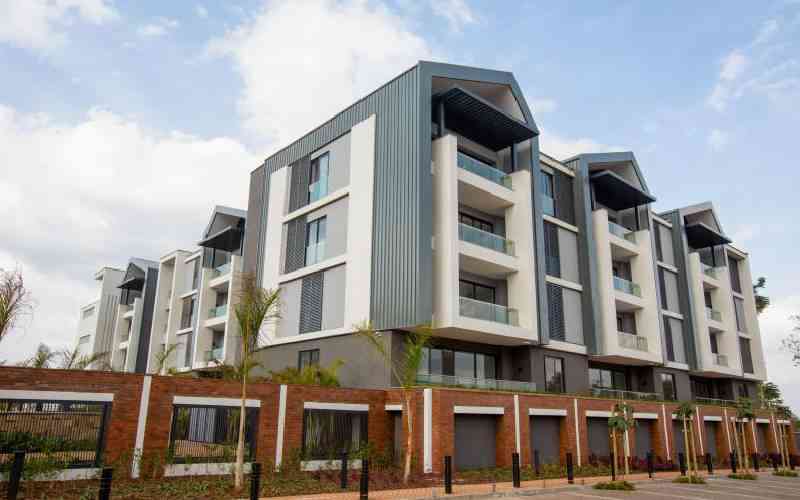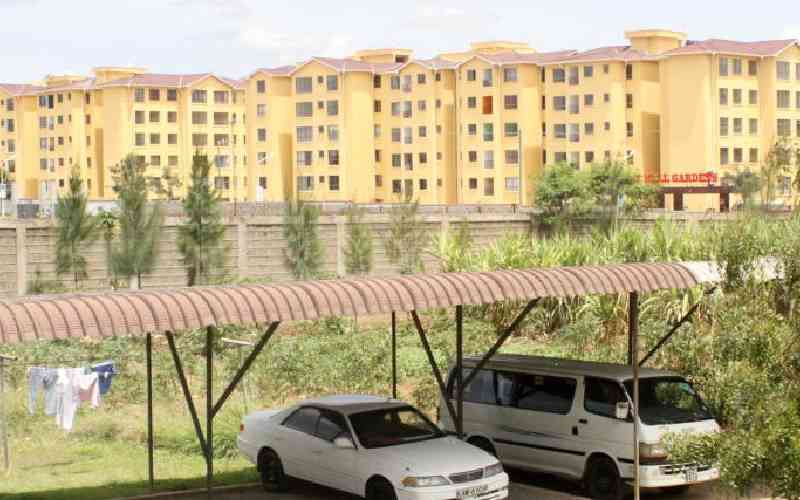
Migaa Golf Estate in Kiambu [Courtesy]
Last month, a real estate developer in Kiambu County announced that it had completed its multi-billion shilling project, with house prices starting at Sh23.5 million.
The property is part of a 400-acre gated community and the masterplan promises prospective home buyers tranquil living in a micro-city complete with commercial, industrial, educational, medical and recreational facilities.
However, the firm raised eyebrows with the service charge set at Sh18,000 per month, an amount that seems quite high despite it being a high-end residential estate.
And it is not the only one. Developers have been levying substantial service charge on property, with some home buyers challenging the developers over the huge amounts, with claims of them being arbitrary and in some cases unjustified.
To many buyers, a high service charge might seem like paying rent on their own houses.
Service charges are levied on both commercial and residential property as a form of management fee that should go towards the maintenance of amenities and structures.
In the case of the Kiambu developer, the service charge is set to fund the running of the amenities that will be shared by all residents of the gated community.
These include a club house, landscaped courtyards, footpaths, street lighting, ICT and cable TV, security patrols and CCTV, sewage treatment and borehole management.
In some cases, however, residents have protested against requirements that they make upfront payment of service charge even as the estate development and infrastructure works are yet to be completed.
Residents of Migaa Golf Estate in Kiambu, for example, have sued the property developer for proposing to construct new high-rise buildings at the estate.
Samara Estate is a project comprising 28 blocks of 1,959 residential units that the Migaa Residents Association say will devalue their property and goes against the masterplan.
“The proposed high-rise, high-density and low-cost apartments, going by the name Samara Estate, will have close to 2,000 units and more than 10,000 residents in 28 blocks of up to 10 floors each,” said the association in a petition to the Environment court in Kiambu.
“This goes against the vision for the estate and the concept that the current homeowners bought into.”
“Currently we have more than 300 residents who were promised a certain standard of living at Migaa,” explained one of the residents who sought anonymity.
“The scale of development involved in Samara will stretch the current amenities, which were not built for such a huge number of residents.”
“As part of the requirements the management is demanding Sh1.2 million in service charges up-front to cover the next 10 years and, personally, I have refused to pay this because as it currently stands, there are no amenities to justify that payment,” said the resident.
According to Linda Njoroge, a lawyer and conveyancing expert in Nairobi, service charges arise out of a gap between the services provided by public utility bodies and those the developer wishes to install.
“Sometimes you have development projects that are set up outside the electricity and water grids supplied by Kenya Power or Nairobi Water (and Sewerage Company), for example, and the developer is forced to invest their own money to provide these services,” she said.
“This is the case in many gated communities, which is why it is crucial for prospective home buyers to read the fine print and ask for all the information relating to such charges before signing the purchase agreements.”
However, how they are calculated, amortised and reviewed is often left to the discretion of the developer and over time, this has been the cause of numerous legal disputes.
In 2019, the Constitutional Court threw out a petition by Tiffany Wangeri, a resident of New World Garden Estate within Kisaju in Kajiado County in a dispute over service charges.
In the dispute, New World Garden Estate doubled the service charge from Sh2,000 to Sh4,500 per month. Ms Wangeri refused to pay, asking for explanations over the price hike that she said did not include water and electricity, which were paid separately.
The developer then disconnected water to her home, forcing her to buy from outside the estate. However, water vendors were turned away at the main gate, with the estate saying her refusal to pay security fees meant the guards were not obliged to open the gate.
In the suit that ensued, the court said Wangeri failed to prove how her constitutional rights were violated.
“The petitioner lives in a community with rules and regulations,” the judge said in the ruling.
“All other members oblige and meet their obligations. The petitioner having opted not to follow the regulations, she must have driven herself out of the right to get common services including water from the common source.”
According to the court, her contractual obligations included paying service charge and failure to do so amounted to an opt-out of the shared services offered by the estate.
“Payment of service charge would put her in a position to demand common services from the respondent, including the right to get water from the common borehole otherwise she may not rightfully demand and consume water she does not pay for given that there is much more the service charge does for the benefit of the community than just water,” the court said.
 The Standard Group Plc is a multi-media organization with investments in media platforms spanning newspaper print
operations, television, radio broadcasting, digital and online services. The Standard Group is recognized as a
leading multi-media house in Kenya with a key influence in matters of national and international interest.
The Standard Group Plc is a multi-media organization with investments in media platforms spanning newspaper print
operations, television, radio broadcasting, digital and online services. The Standard Group is recognized as a
leading multi-media house in Kenya with a key influence in matters of national and international interest.











